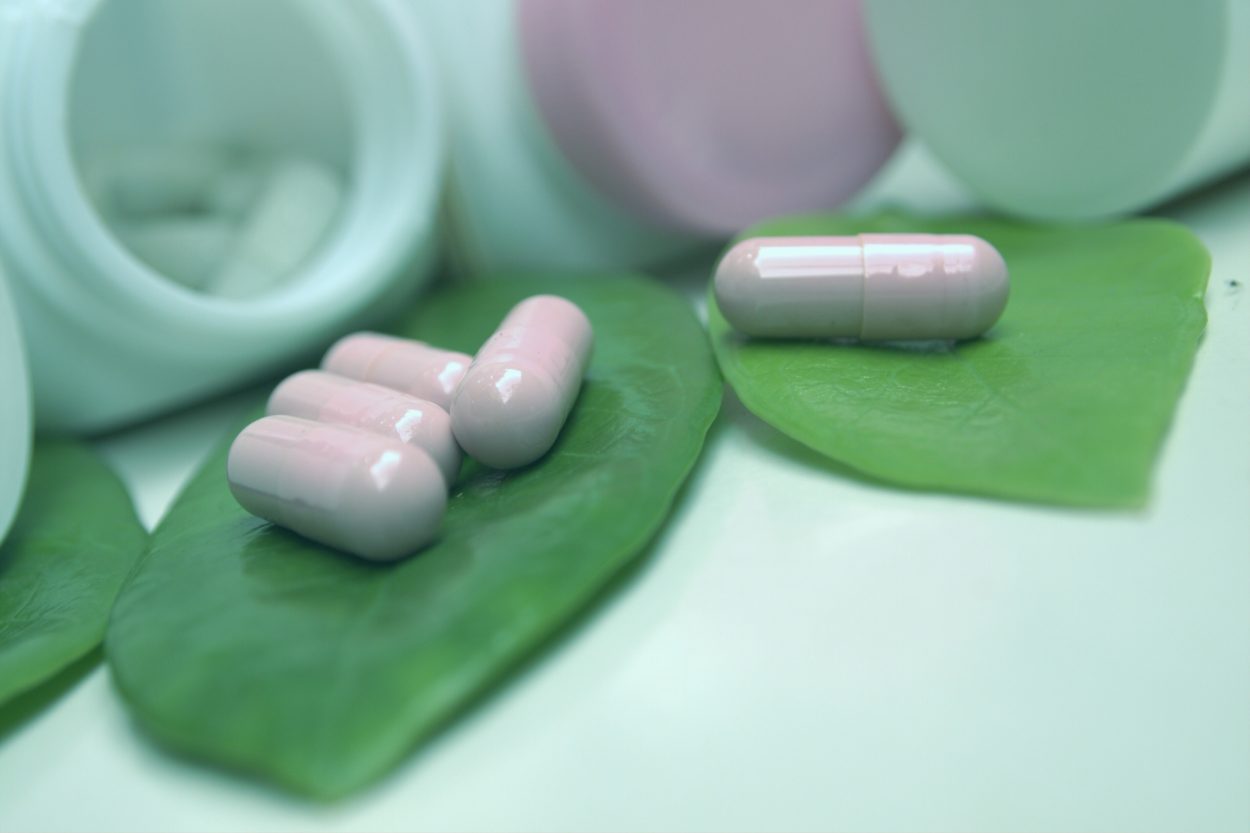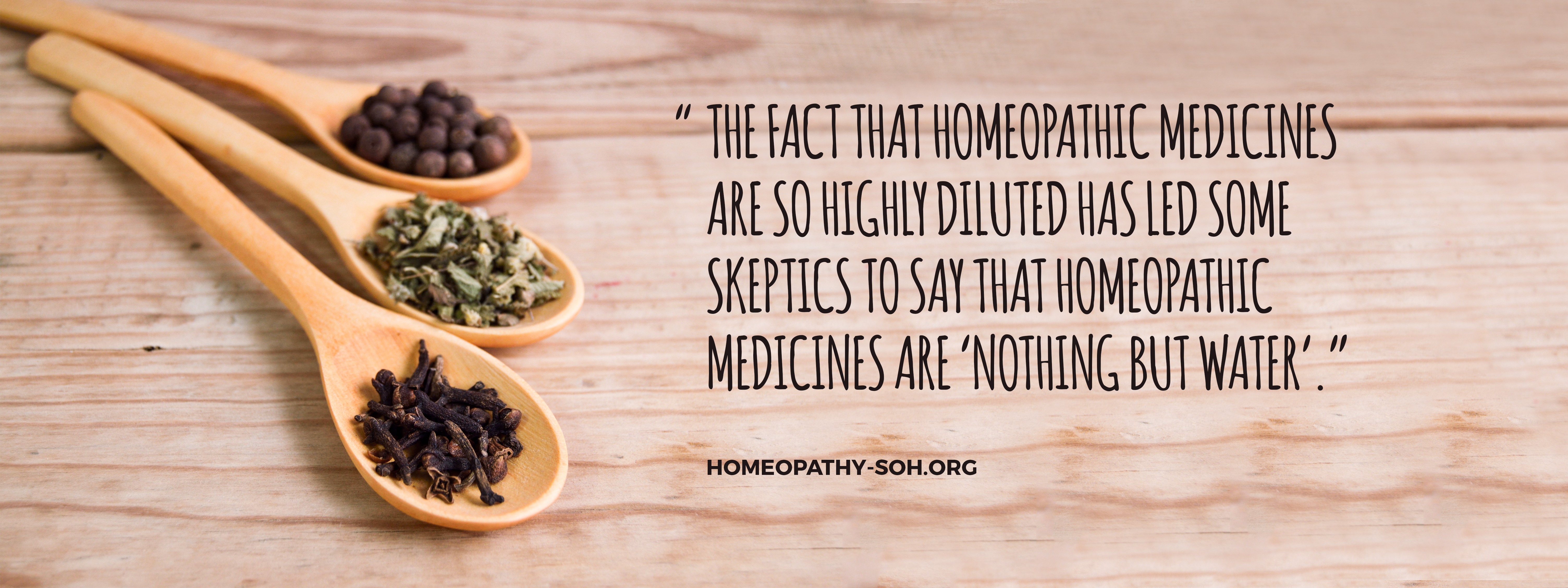
Now that I’m in school to become a nutritionist, being informed about alternative medicines like homeopathy seems like a good idea. If I ever need to explain the differences between the two in order to separate nutrition from homeopathy, I need to have a knowledgeable place to do that from.
I believe in science, and medicine; but also the healing power of nature; so let’s look at this from a critical and scientific point of view.
Okay, so what is homeopathy?
“A system of medicine which involves treating the individual with highly diluted substances, given mainly in tablet form, with the aim of triggering the body’s natural system of healing.” (homeopathy-soh.org)
Yes, the body is capable of healing itself… to a point. What exactly do they mean by ‘substances?’
A ‘substance’ is something “which causes symptoms when taken in large doses” An example: “Drinking too much coffee can cause sleeplessness and agitation, when made into a homeopathic medicine, it could be used to treat people with these symptoms.” (homeopathy-soh.org)
So in this example, coffee is the substance. Do you want the nutritionist solution to the above example? Caffeine raises cortisol, which is known as the ‘stress hormone’, so high amounts would lead to a feeling of agitation. High cortisol levels also affect sleep; thus leading to the sleeplessness. So rather than treat a symptom, I would eliminate the cause of the symptoms by eliminating high amounts of caffeine from the diet. Alternatively, I would recommend more exercise since exercise blocks the effects of cortisol.
What’s in a homeopathic remedy?
“Homeopathic medicines are made from plant, chemical, mineral or animal sources. The original material is diluted, then shaken vigorously (succussed).” (homeopathy-soh.org)
So that sounds all fine and dandy. There are plants that can do wonderful things, like Aloe Vera or Calendula for example. homeopathy.org lists homeopathic remedies, along with what each one does. Calendula is on the list! So is Bromine… which, according to lenntech.com is pretty toxic to humans, yet is okay to treat a child’s cough? Okay, that’s weird. Well, I’m not going to go through each thing on this list, but taking a small look it seems as though many of the remedies are simply made from plants and flowers. There’s nothing wrong with that. Many plants have serious benefits when eaten, added to tea, or applied topically. When they say ‘diluted’ – how much dilution are we talking about?
“Conventional medical drugs can be described simply as chemicals that interact directly with the body’s biochemistry; as homeopathic medicines are too dilute to contain molecules of the original substances they are made from, we know that they don’t work in this biochemical way and must therefore have an entirely different mechanism of action. The starting medicinal substance (e.g. plant material) is dissolved in water and alcohol, and then diluted and succussed many times, often to the point where we would expect there to be no molecules of the original substance left.” (homeopathy-soh.org)
Well that explains the Bromine bit. The Bromine is so diluted that in the final remedy there isn’t a single molecule of it left. While I’m glad homeopathy isn’t asking me to ingest toxic chemicals, what is the point if the original ingredient is not longer present?
“The manufacturing process of ultra-high dilutions causes an interaction between molecules of the active ingredient (e.g. plant material) and the water it is dissolved in, creating new structures called ‘quantum coherence domains’. This process effectively imprints information from the active ingredient into the water it is dissolved in, so that even when there are no longer any molecules of the plant left, its characteristics remain in the water.” (homeopathy-soh.org)
So the water is supposed to retain the memory of the Bromine because it was shaken, even though not a single molecule of the Bromine is left? Well, my new question is how does water remember something enough for it to have an impact on someone? Once that person takes the remedy, and that pill makes its way through their system, will that tiny bit of water still retain the memory of the original ingredient, thus altering every living thing it comes into contact with from that point on?
That question is so complex I’m not even going to Google it. Whew. I’m not a scientist, and I’m not familiar with molecular biology or quantum anything, so…
What does the scientific community say?
“Homeopathy is ‘dangerous and wasteful,’ bioethics expert argues”
“2014, A Bad Year For Homeopathy”
“There is no scientific case for homeopathy: the debate is over”
The scientific community has declared homeopathy no more effective than a placebo. All the search results I get in favor of homeopathy either bring me to a homeopathic website, or to something saying that homeopathy works, but we still can’t scientifically explain it.

So is it medicine?
Probably not. Without any actual scientific evidence to say “why, yes it is medicine!” it can’t really be defined as such.
Is it possible that science isn’t able to detect this ‘water memory’ yet? Maybe. Science is making amazing discoveries every day. Will they one day discover some unbelievable property of water that allows it to retain the memories of previous ingredients? Will that mean water remembers every ingredient that has even been in it? That raises a ton of questions. Homeopathy dates back to 1796 and many people swear by it; without any real scientific proof to back it up. Why?
I have actually tried a homeopathic remedy before. Last summer when I was pregnant my allergies were going nuts and I didn’t want to use anything that might harm the baby so I tried a homeopathic nasal spray. At first my allergies stayed the same. About a week later, my allergies were gone. Was it because of the nasal spray? Not likely. My allergies cleared up right when the rain started, washing away all the pollen in the air. The cause of my allergies went away, and so did my symptoms. It’s as simple as that. But you can see how someone might think the homeopathic remedy had a part to play.
I suppose if a homeopathic remedy works for you, then maybe you can define it as medicine… for you. Maybe that same remedy wouldn’t do a thing for someone else. Or maybe it’s not actually doing anything at all, and your symptoms only cleared up as a result of you changing the cause of the symptoms, just believing you had a cure (placebo effect), or maybe the original ailment cleared up on its own. I, personally, would not rely on a homeopathic remedy. But that’s just me. Even if you know someone who has had great success with a remedy, let’s not forget that every person is biochemically different, and what works for someone might not work for another. This is true for conventional and natural medicine alike.
My Verdict
Homeopathy is not medicine. It cannot be scientifically called such, and therefore comes with no guarantee or likelihood for treating any type of ailment.
Yes, modern medicine DOES have a lot of chemicals, toxins, and generally bad stuff in it, and usually comes with a huge list of scary side effects; but it has come very far, and unless we have the luxury of testing out alternative medicines that might not work at all, I would rather play it safe and use something that WILL work (Like antibiotics, vaccines, and pharmaceutical drugs when absolutely necessary).
If you’re thinking about trying a homeopathic remedy, maybe this article has helped, or maybe it has made you more confused than ever (Sorry if that’s the case). Here’s a list of situations where I believe it would be safe to try a homeopathic remedy (For a minor ailment) if you’re curious, and a list of times I would not recommend ever trying a homeopathic remedy (For anything life threatening or urgent, instead of a vaccine, for any disease, or anything worrying that involves babies, children, or the elderly).
When it’s probably SAFE to test a homeopathic remedy (If you’re still curious):
Anytime you’re not in dire need of a cure for something, it’s safe to experiment. Then if it doesn’t work, it’s not a big deal.
- Pregnant and worried about pharmaceutical drugs that could harm the baby; and want a remedy for something mild, like allergies
- Occasional, mild acne breakouts that are really not a big deal
- A topical cream for a minor skin rash. If it works you don’t need to see the doctor; if not, not a big deal
- To aid in weight-loss. Again, it can’t hurt to try.
When it is probably UNSAFE to use a homeopathic remedy:
When an effective treatment is needed and you don’t have the luxury of testing something that probably won’t work.
- The baby is sick with an ear-infection, fever, weird rash… really anything that worries you. Go with something tried and tested.
- As any stand-alone disease treatment. Some homeopathic remedies might compliment treatment for a disease, but you probably shouldn’t rely solely on a homeopathic remedy to treat a disease by itself.
- For heavy seasonal allergies. If your allergies get so bad you can’t stop sneezing for two minutes, you need something stronger. Or, you need to find out if your reaction is caused by something else (Food allergy?)
- A severe asthma attack. This can get serious, fast. You can’t gamble on this one.
- Instead of a vaccine. A homeopathic remedy is probably not going to keep you safe from yellow fever in the Amazon rain forest; probably won’t keep your child safe from catching whooping cough from someone; and won’t do too much if you get tetanus from slicing your hand on a rusted nail.
In Conclusion
Homeopathy claims to take a holistic view of each person, then gives a remedy based on these findings; but why treat a symptom at all? If you take a holistic view of a person (the whole person, their lifestyle, their job, their diet, etc), pinpointing the cause of the symptoms would be much more beneficial. That’s where holistic nutrition comes in; treating the cause of an ailment, with dietary changes and supplementation, so the symptoms clear up and do not come back. This is not the case for disease, as nutritionists do not treat disease, but instead support any additional nutritional requirements a person may need due to the disease or the disease treatments.
Feedback
Have you ever tried a homeopathic remedy? Did you have any success? Could that success be due to another factor or are you absolutely sure it was the homeopathic remedy that cured you? Let me know in the comments!
DISCLAIMER
The contents of this website are for informational purposes only and should not be considered any type of medical advice. The information provided in this website should not be used for diagnosing or treating a health condition or disease, and should not be substituted for professional care. Every human is biochemically different and what works for one person may not work for another. If you suspect or have a medical condition, consult an appropriate health care provider.





Blog Comments
party status
May 4, 2016 at 11:15 pm
Hi there! Would you mind if I share your blog with my
zynga group? There’s a lot of folks that I think would really enjoy your content.
Please let me know. Cheers
blahfolder
April 23, 2016 at 10:13 pm
“Quantum Coherence Domains” sounds very scientific, but if a homeopathic practitioner is working at the quantum level, how do they explain how they accurately separate out the “good” from the “bad” quantum subatomic particles (or how these subatomic particles are supposed to make any significant impact to the individual when consumed)? Hopefully with time, more people will question “spooky scientific language” answers, which attempts to mask the lack of evidence or any real science. Until the homeopathic community catches up with the scientific and medical community and starts producing real, reproducible evidence, it seems like the only benefit in a homeopathic solution might be in consuming an extra glass of water each day.